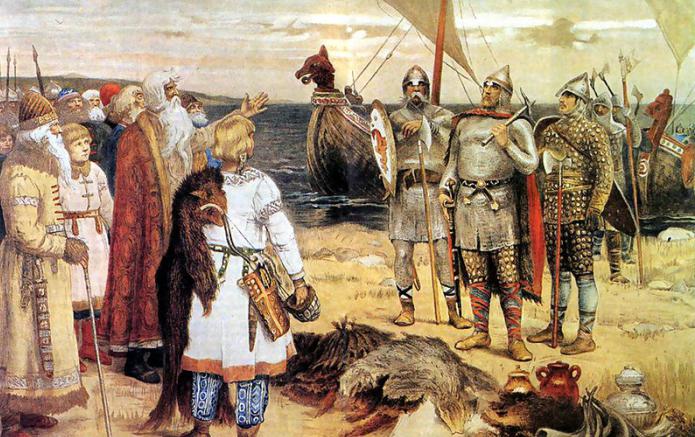Ryadovichi - who is it, what is their role in the social system of Kievan Rus? This question is asked not only by high school students, but also by historians, since there is not so much information about the social system of Russia.
Kievan Rus: a brief information
On the basis of excavation materials, it can be said that the Slavs from ancient times lived on the banks of the rivers in half dugouts with a furnace.

The villages formed a community based on socio-economic relations. Communities could be separated from each other by tens, or even hundreds of kilometers. The community was engaged in agriculture and cattle breeding. It is erroneous to believe that this industry was underdeveloped. For example, for quite a long time, almost until the tenth century, cattle was synonymous with money. For the survival of the community was also necessary flight support, hunting and fishing. As for the social system, it can be described as military democracy. The basis of any society is hierarchy. But in ancient Russian society, the hierarchy was built not on the principle of coercion, but on psychological aspects - influence, imitation, prohibitions (taboo system). This all formed a social behavior algorithm that caused subordination (psychological) in people. As a result, this algorithm aroused a sense of care and responsibility in some, and in others - reverence and fear. These algorithms are fixed as mental archetypes and serve as a kind of indicators of the ethnic identity of the people. In the 11-12 centuries, the stratification of society that began earlier and the more distinct formation of social strata continues. Inequality is growing, even outcasts are beginning to appear - people forced to leave their community for one reason or another. Also, by the 12th century, in the eyes of people, land with people working on it is gaining more and more value. For the first time in Russian truth, the concepts of "row-men", "purchases", "slaves" appear. All these categories of the population were more or less dependent on the landowner.
Ryadovich in Ancient Russia - who is this?
At present, nothing definite can be said about the social nature and functions of Ryadovich. Some researchers consider Ryadovich an ordinary slave. The fact is that in Russian Truth its price is 5 hryvnias.
Exactly the same price and a simple slave. But Ryadovich was not always a slave. Sometimes Ryadovich is a person who can live with someone and work under a contract of employment. There is also an opinion among historians that Ryadovich is the lowest managerial link, that is, a non-free clerk. Danil the Sharpener has a link to this . In particular, he mentions that the prince is like a bonfire burning the good of people, and his rank and file are sparks. That is, Ryadovich is a person who performs administrative work in favor of the prince.
Ryadovich - are slaves or not?
Some historians equate rank and file with servants on the basis of personal dependence. However, if we take into account the fact that Ryadovich are people who, according to a number (agreement), live with someone and work for this person, then they can no longer be called slaves. At the same time, if he is not a slave, then he is not a hired worker in a capitalist society. He is a feudal-dependent person, that is, under the contract he becomes dependent and is part of the servants.
According to the hierarchy, he becomes next to the serf, but retains conditional dependence.
The social essence of Ryadovich
In the "Russian Truth" there are clear instructions in this regard. According to them, a person can become an ordinary if he wants to marry a slave. But before marriage, it was necessary to clearly stipulate the conditions of a number. A potential bridegroom may in a row become either a tyun or a key keeper. Also in the "Russian Truth" provides an option when in the event of the death of Ryadovich his wife must work out his duties. But there was also provided for a "detachment" - a way out of a dependent position, the abolition of a number. It is the “discharge” process that shows that the rank and file are not slaves. They could pay off their master.